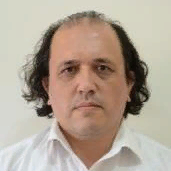International Journal of Engineering and Manufacturing (IJEM)
IJEM Vol. 10, No. 5, 8 Oct. 2020
Cover page and Table of Contents: PDF (size: 673KB)
Stabilization of Ball-On-Sphere System with Super Twisting (ST) Sliding Mode Control (SMC) as a Method of Chattering Reduction
Full Text (PDF, 673KB), PP.1-17
Views: 0 Downloads: 0
Author(s)
Index Terms
SMC, ST SMC, Ball-on-sphere, Chattering, System
Abstract
A SMC for the ball-on-sphere system was designed in this work. The mathematical system’s model was first derived and a SMC was designed. Then, Lyapunov’s method was used to test for the convergence on the sliding surface, and convergence of the system's states to the sliding surface was guaranteed. To reduce chattering, a super twisting SMC was designed. A controller that is linear was first given to the system and the simulation results showed that, while there is disturbance, achieving origin’s asymptotic stability is not viable. A SMC was then applied next, while there is disturbance, origin’s asymptotic stability was attained in finite-time. Then a 2nd order SMC was applied and the results showed faster origin’s asymptotic stability in finite time. Therefore, the real effect of applying a 2nd order SMC is faster asymptotic stability of the origin1. To reduce chattering, a ST SMC was applied and the chattering was observed to be reduced efficiently.
Cite This Paper
Usman Mohammeda, Suleiman U. Hussein, Gokhan Koyunlu. "Stabilization of Ball-On-Sphere System with Super Twisting (ST) Sliding Mode Control (SMC) as a Method of Chattering Reduction", International Journal of Engineering and Manufacturing (IJEM), Vol.10, No.5, pp.1-17, 2020. DOI: 10.5815/ijem.2020.05.01
Reference
[1]K. Furuta, M. Yamakita, and S. Kobayashi, “Swing-up Control of Inverted Pendulum Using Pseudo-State Feedback,” Proc. Inst. Mech. Eng. Part J. Syst. Control Eng., vol. 206, no. 4, pp. 263–269, Nov. 1992, doi: 10.1243/PIME_PROC_1992_206_341_02.
[2]J. Hauser, S. Sastry, and P. Kokotović, “Nonlinear control via approximate input-output linearization: The ball and beam example,” Autom. Control IEEE Trans. On, vol. 37, pp. 392–398, Apr. 1992, doi: 10.1109/9.119645.
[3]M. L. Moore, J. T. Musacchio, and K. M. Passino, “Genetic adaptive control for an inverted wedge: experiments and comparative analyses,” Eng. Appl. Artif. Intell., vol. 14, no. 1, pp. 1–14, Feb. 2001, doi: 10.1016/S0952-1976(00)00047-6.
[4]E. Zakeri, S. Moezi, and Y. Bazargan-lari, “Control of a Ball on Sphere System with Adaptive Feedback Linearization method for regulation purpose,” MAJLESI J. Mechatron. Syst. 102013 23, vol. 2, Oct. 2013.
[5]M. Ho, Y. Tu, and H. Lin, “Controlling a ball and wheel system using full-state-feedback linearization [Focus on Education],” Control Syst. IEEE, vol. 29, pp. 93–101, Nov. 2009, doi: 10.1109/MCS.2009.934085.
[6]C. Graf and T. Röfer, “A Closed-loop 3D-LIPM Gait for the RoboCup Standard Platform League Humanoid,” p. 5, 2010.
[7]C. Edwards, A. Akoachere, and S. K. Spurgeon, “Sliding-mode output feedback controller design using linear matrix inequalities,” IEEE Trans. Autom. Control, vol. 46, no. 1, pp. 115–119, Jan. 2001, doi: 10.1109/9.898702.
[8]J.-J. E. Slotine and W. Li, Applied nonlinear control. Englewood Cliffs, N.J: Prentice-Hall, 1991.
[9]A. Rhif, Z. Kardous, and N. B. Braiek, “A PID-Sliding Mode Control Design for a Coupled Tank,” p. 6, 2012.
[10]H. Brandtstadter, “Sliding Mode Control of Electromechanical Systems,” p. 140.
[11]W. Perruquetti and J. P. Barbot, Eds., Sliding mode control in engineering. New York: M. Dekker, 2002.
[12]F. Piltan, N. Sulaiman, M. Rashidi, Z. Tajpaikar, and P. Ferdosali, “Design and Implementation of Sliding Mode Algorithm: Applied to Robot Manipulator-A Review,” Int. J. Robot. Autom., p. 18, 2011.
[13]C. T. Heng et al., “DESIGN AND ANALYSIS OF SUPER TWISTING SLIDING MODE CONTROL FOR MACHINE TOOLS,” J. Teknol., vol. 78, no. 10–3, Oct. 2016, doi: 10.11113/jt. v78.9758.
[14]S.-Y. Liu, Y. Rizal, and M.-T. Ho, “Stabilization of a Ball and Sphere System Using Feedback Linearization and Sliding Mode Control,” p. 6.
[15]K. J. Burnham, A. S. I. Zinober, and A. J. Koshkouei, “Dynamic sliding mode control design,” IEE Proc. - Control Theory Appl., vol. 152, no. 4, pp. 392–396, Jul. 2005, doi: 10.1049/ip-cta:20055133.
[16]A. Zebardast and H. Ghadiri, “DC Motor Control Using Sliding Mode Method,” Electr. Comput. Eng., p. 7, 2013.
[17]M. Idrees, S. Ullah, and S. Muhammad, “Sliding mode control design for stabilization of underactuated mechanical systems,” Adv. Mech. Eng., vol. 11, no. 5, p. 168781401984271, May 2019, doi: 10.1177/1687814019842712.
[18]S. Wen, M. Z. Q. Chen, Z. Zeng, X. Yu, and T. Huang, “Fuzzy Control for Uncertain Vehicle Active Suspension Systems via Dynamic Sliding-Mode Approach,” IEEE Trans. Syst. Man Cybern. Syst., vol. 47, no. 1, pp. 24–32, Jan. 2017, doi: 10.1109/TSMC.2016.2564930.
[19]S. Jian, L. Zhitao, and S. Hongye, “A second-order sliding mode control design for bidirectional DCDC converter,” in 2017 36th Chinese Control Conference (CCC), Dalian, China, Jul. 2017, pp. 9181–9186, doi: 10.23919/ChiCC.2017.8028819.
[20]Z. Feng and J. Fei, “Design and analysis of adaptive Super-Twisting sliding mode control for a microgyroscope,” PLOS ONE, vol. 13, no. 1, p. e0189457, Jan. 2018, doi: 10.1371/journal.pone.0189457.
[21]Y.-W. Liang, S.-D. Xu, and T.-C. Chu, “Robust Control of the Robot Manipulator via an Improved Sliding Mode Scheme,” in 2007 International Conference on Mechatronics and Automation, Harbin, China, Aug. 2007, pp. 1593–1598, doi: 10.1109/ICMA.2007.4303787.
[22]V. I. Utkin, “Sliding mode control design principles and applications to electric drives,” IEEE Trans. Ind. Electron., vol. 40, no. 1, pp. 23–36, Feb. 1993, doi: 10.1109/41.184818.
[23]V. M. Panchade, L. M. Waghmare, B. M. Patre, and P. P. Bhogle, “Sliding Mode Control of DC Drives,” in 2007 International Conference on Mechatronics and Automation, Harbin, China, Aug. 2007, pp. 1576–1580, doi: 10.1109/ICMA.2007.4303784.
[24]K. D. Young, “A Control Engineer’s Guide to Sliding Mode Control,” IEEE Trans. CONTROL Syst. Technol., vol. 7, no. 3, p. 15, 1999.
[25]M. Moarref, M. Saadat, and G. Vossoughi, “Mechatronic design and position control of a novel ball and plate system,” in 2008 16th Mediterranean Conference on Control and Automation, Ajaccio, France, Jun. 2008, pp. 1071–1076, doi: 10.1109/MED.2008.4602212.
[26]S. A. Moezi, E. Zakeri, Y. Bazargan-Lari, and M. Khalghollah, “Fuzzy Logic Control of a Ball on Sphere System,” Adv. Fuzzy Syst., vol. 2014, pp. 1–6, 2014, doi: 10.1155/2014/291430.
[27]E. Zakeri, A. Ghahramani, and S. Moezi, “Adaptive Feedback Linearization Control of a Ball on Sphere System,” p. 5.
[28]A. Tewari, Modern control design with MATLAB and SIMULINK. Chichester; New York: John Wiley, 2002.
[29]V. Utkin, “Variable structure systems with sliding modes,” IEEE Trans. Autom. Control, vol. 22, no. 2, pp. 212–222, Apr. 1977, doi: 10.1109/TAC.1977.1101446.
[30]H. U. Suleiman, M. B. Murazu, T. A. Zarma, A. T. Salawudeen, S. Thomas, and A. A. Galadima, “Methods of Chattering Reduction in Sliding Mode Control: A Case Study of Ball and Plate System,” in 2018 IEEE 7th International Conference on Adaptive Science & Technology (ICAST), Accra, Aug. 2018, pp. 1–8, doi: 10.1109/ICASTECH.2018.8506783.


